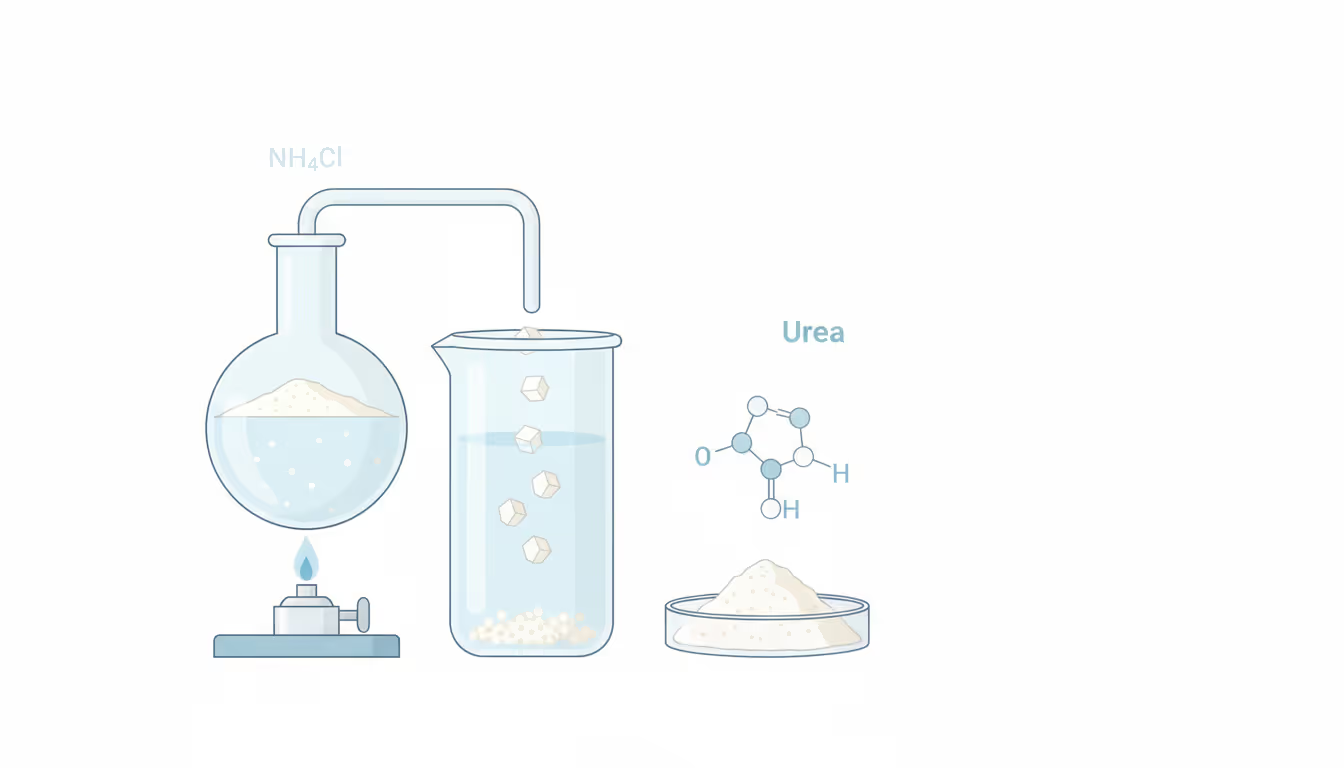
Urea is a nitrogen-containing compound that is typically filtered from the blood by the kidneys and excreted in urine. When kidney function is impaired, blood urea levels rise, which can be detected through a specific test. Urea holds significant historical importance as it was the first organic compound to be synthesized in a laboratory. In 1828, German chemist Friedrich Wohler tried to create ammonium cyanate using ammonium chloride, but instead, he inadvertently produced urea. He famously reported to his mentor, Jons Berzelius, "I can make urea without the need for kidneys, whether human or animal. Ammonium cyanate is urea." This groundbreaking discovery challenged the prevailing belief in vitalism, which posited that organic substances could only be created by living organisms. Wohler also found that although urea and ammonium cyanate shared the same chemical formula, their properties were different due to isomerism. Isomerism occurs when compounds have identical numbers and types of atoms, but the arrangement of these atoms differs, resulting in distinct chemical properties for each compound.




